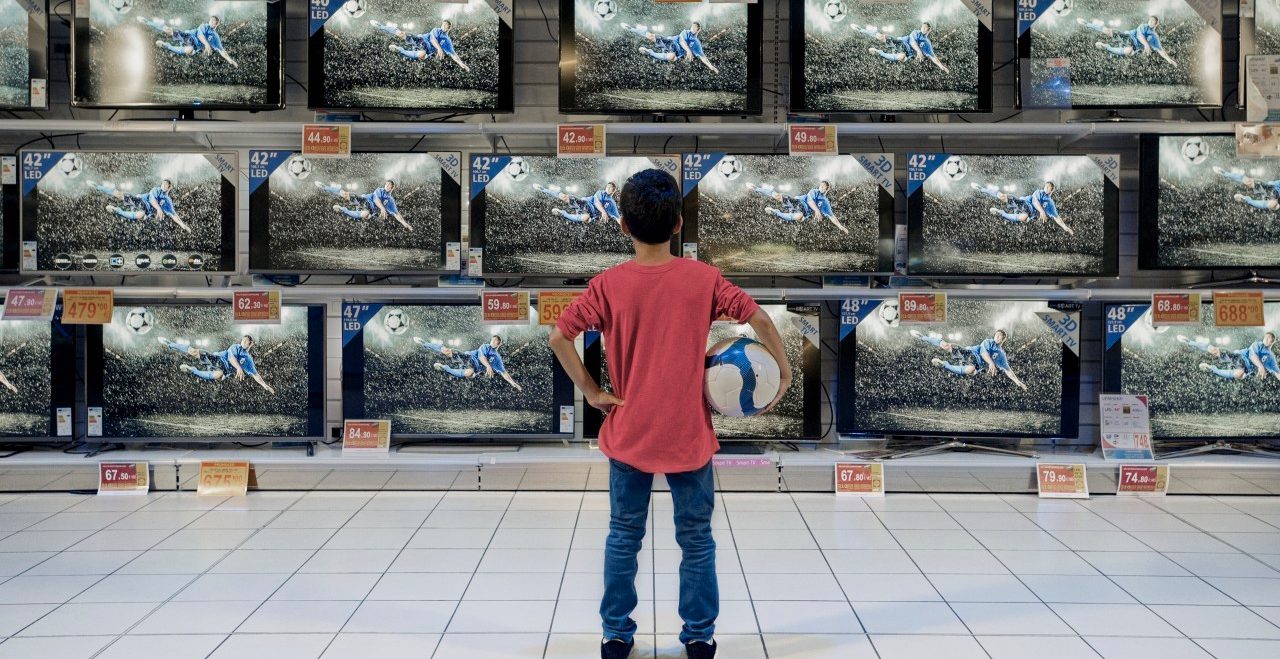Limit Your Child’s Screen Time

When parents use screen time parental control limits on media time and restrict the types of content kids watch, they see real results. Here's what you can do.
A generation or two ago, children occupied their time with sports and imaginative play. They’d kick around the soccer ball, play a game of catch, or engage in a futuristic fight with robots or aliens. Today, children’s time is increasingly spent parked in front of a screen.
The average 8-to-10-year-old fills nearly four to six hours a day watching TV, playing on a computer or video game console, or texting on a smartphone. Teens stare at screens for up to 9 hours a day — longer than they sleep, go to school, or do just about any other activity.
And children are becoming engrossed in screens before they even learn to walk.
YOU MIGHT ALSO LIKE: Tips for Tackling Homeschool Socialization
Screen time and kids’ health
So much screen time is having a marked effect on children’s interactions — and on their health. For one thing, a lack of face-to-face time could be affecting kids’ social skills. One study found that sixth-graders who went electronics-free for five days at a nature camp were far better at reading human emotions than those who stayed plugged-in. Having from one to four hours of screen time at age 1 could be linked to a higher risk of developmental delays.
“You can’t learn nonverbal emotional cues from a screen in the way you can learn it from face-to-face communication,” said lead author Yalda Uhls, PhD, a senior researcher with UCLA’s Children’s Digital Media Center. “If you’re not practicing face-to-face communication, you could be losing important social skills.”
The sedentary nature of using electronics also contributes to weight gain. Kindergarteners who watch just one hour of TV a day are more likely to be overweight or obese than their peers who have less TV time.
Screen time parental control
The American Academy of Pediatrics recommends that kids spend no more than one to two hours a day on electronic devices. Yet more than two-thirds of young people have free reign on media time, watching, texting, and playing for as long as they want.
The types of media your children view and play are just as important as how much time they spend on it. It’s hard to question the educational value of a show like Sesame Street, which launched several generations of children on the road to learning. But inappropriate programming can have harmful effects on kids. For example, watching a lot of violent TV shows could contribute to future aggressive behaviors.
When parents set limits on media time and restrict the types of content kids watch, they see real results: Their children get more sleep, perform better in school, and behave better, according to a study in JAMA Pediatrics.
“When parents are involved it has a powerful protective effect across a wide range of different areas that they probably never would have expected to see,” says Douglas Gentile, PhD, lead author of the study and an associate professor of psychology at Iowa State University.
Getting kids to unplug
If your kids are hooked on computers, smartphones, and video games, here are a few tips to wean them off electronics:
- Don’t try to cut your kids down from eight hours a day to one hour all at once. The transition will be too jarring. Instead, trim 30 minutes at a time from their media allowance over the course of a month.
- At the beginning of each week, decide as a family which TV programs each child wants to watch and which games they want to play. Write a schedule and post it on the fridge or in another central area.
- Watch and play together. Use TV and video game time as an opportunity to discuss the kinds of things your kids are seeing — especially potentially inappropriate topics like violence and sex.
- Ban electronics from meals, family gatherings, and outings. Turn off the TV and make kids put away their smartphones.
- Take the TV, phone, and computer out of your children’s rooms and put them in central areas of the house, like the kitchen or living room, where you can monitor what they’re doing.
- Plan offline activities to keep kids occupied. Play hide-and-seek or catch outside when the weather cooperates. Use activity books, board games, and arts and crafts on cold or rainy days.
If you need a little extra help managing your child’s screen time, try these resources:
- Visit a website like Common Sense Media, which reviews TV shows, games, and apps for their age-appropriateness.
- Download an app such as Screen Time to get your kids off their devices and back into the real world.
- Use parental control technology to limit the type of media your child uses and their time using it. Net Nanny restricts your children’s access to inappropriate websites. Your TV, computer, and internet service provider should also allow you to set certain parental control features. Also ask your TV provider how to block programs you don’t want your kids watching.
Updated:
February 01, 2023
Reviewed By:
Janet O’Dell, RN